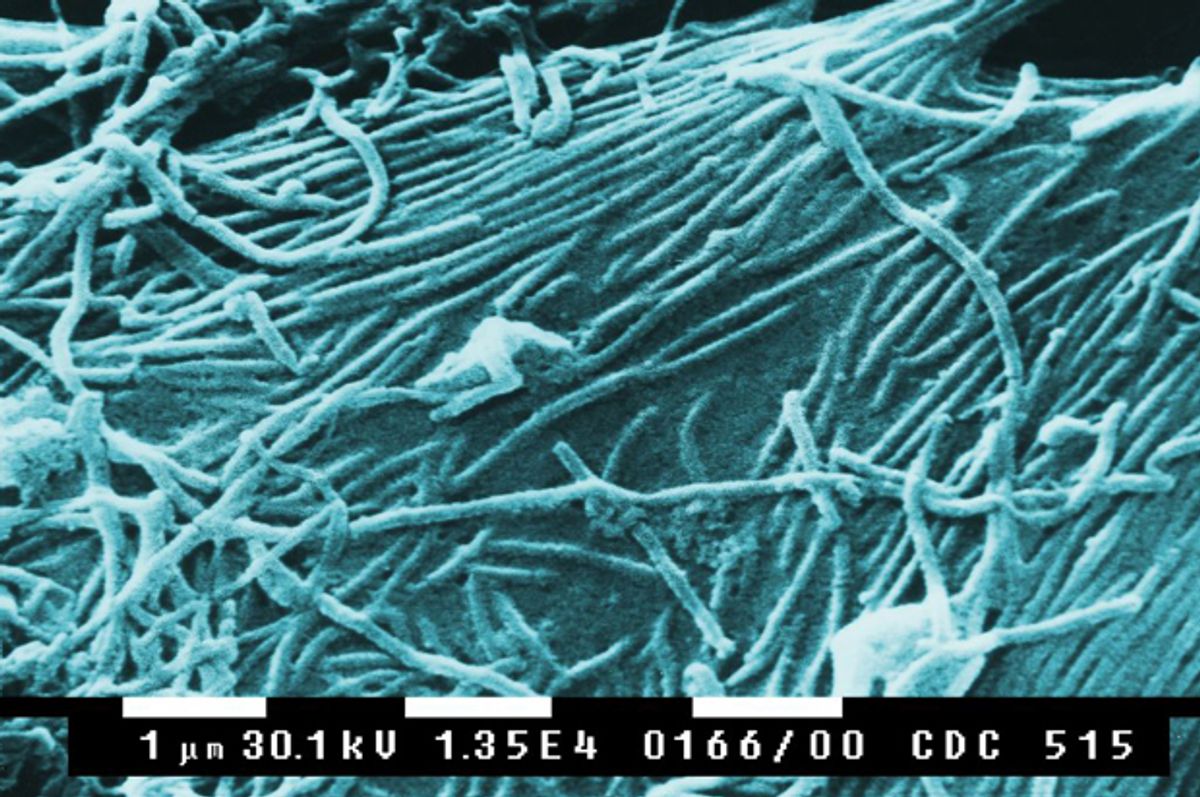DAKAR, Senegal (AP) — A man infected with Ebola traveled to Senegal, becoming the first recorded in this country of an outbreak that has hit four other West African countries and has killed more than 1,500 people, the Ministry of Health said Friday.
The infected person is a university student from Guinea who sought treatment at a hospital in Senegal's capital, Dakar, this week, Health Minister Awa Marie Coll Seck told reporters. The young man said he had had contact with Ebola patients while he was in Guinea and was immediately put under quarantine, she said.
Tests from the Institut Pasteur have confirmed that he has Ebola, and the World Health Organization has been alerted.
The Ebola outbreak ravaging West Africa began last year in Guinea. Since then, the disease has spread to Liberia, Sierra Leone and Nigeria. At least 3,000 have contracted the disease, which is spread by bodily fluids and for which there is no known cure.
The arrival of the dreaded disease in Senegal, which is a tourist destination and whose capital is a major transportation hub for the region, underscores that the outbreak is not under control, despite efforts by the World Health Organization, Doctors Without Borders and other organizations.
WHO on Friday said the past week has seen the highest increase of cases — more than 500 — since the outbreak began.
It is not clear how or when the young man came to Senegal, which has closed its border with Guinea. But Seck said that this week an epidemiological surveillance team from Guinea alerted Senegalese authorities that they had lost track of a person who had had contact with the sick. The team said this person may have come to Senegal.
Seck said authorities have determined that the young man now in quarantine is one who fled.
WHO, which is the U.N. health agency, has warned that the disease could eventually infect 20,000 people, and unveiled a plan Thursday to stop transmission in the next six to nine months.
But a top official from Doctors Without Borders, which is running many of the Ebola treatment centers, said the agency wasn't doing enough.
"The World Health Organization can't handle" the outbreak, Mego Terzian, the group's president for France, told France Inter radio. "I don't see how with the current measures how we're going to control the outbreak and stop the outbreak."
He called for a far greater response from the international community, saying the U.N. Security Council should take up the matter and noting that there are countries with military medical units that could be useful.
In a detailed report Friday, WHO said more than 500 cases were recorded over the past week, by far the worst toll of any week so far. The week before, around 400 new cases were reported.
Most new cases are in Liberia, but the agency said it was also the highest number of cases in one week for Guinea and Sierra Leone. Nigeria has recorded a small number of cases.
"There are serious problems with case management and infection prevention and control," the report said. "The situation is worsening in Liberia and Sierra Leone."
Neither of those countries has enough space in treatment centers to handle the tremendous and increasing number of cases, it said.



Shares